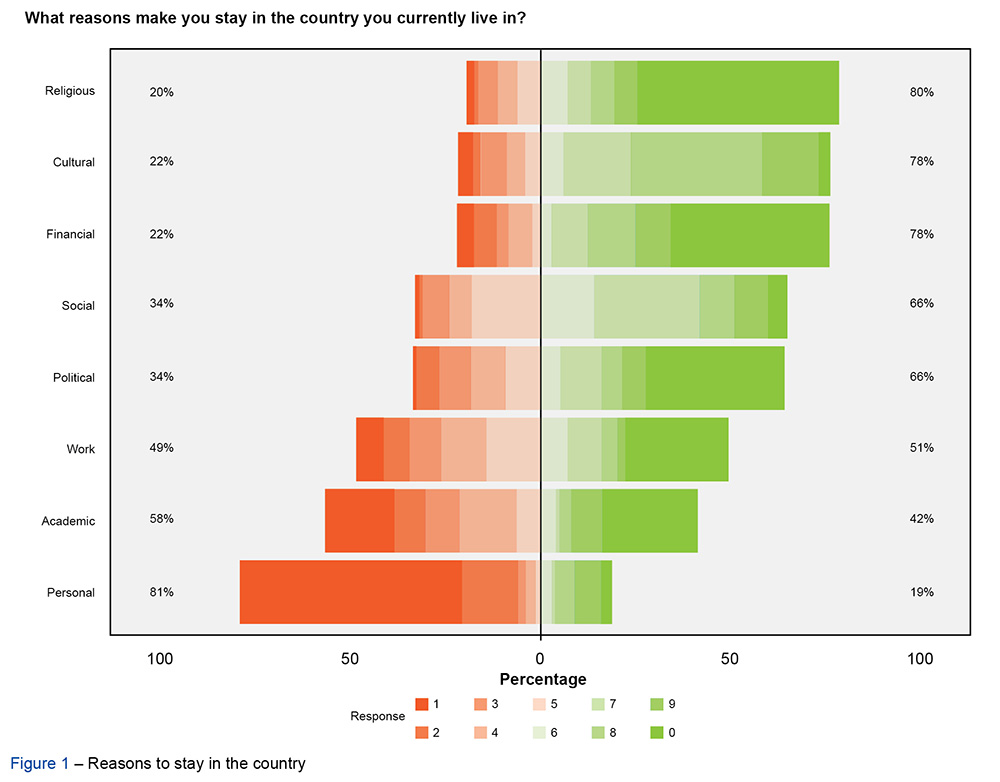SOCIAL MEDIA
Portuguese Medical Association's Scientific Journal

Introduction: In the last few decades, the rates of international medical migration have continuously risen. In Psychiatry, there is great disparity in the workforce between high and low-income countries. Yet, little is known about the ‘push’ and ‘pull’ factors and the migratory intentions of trainees. This study aims to assess the factors impacting the decisions of psychiatric trainees in Portugal towards migration.
Material and Methods: A questionnaire was developed in the Brain Drain study and was distributed to psychiatric trainees in Portugal.
Results: The sample consists of 104 psychiatric trainees (60.6% female). Overall, 40.4% of the trainees had prior experience of living abroad and the majority (96.9%) felt that this experience influenced their attitude towards migration in a positive way. About 75% of trainees had ‘ever’ considered leaving the country, but the majority (70.0%) had not taken any ‘practical steps’ towards migration. The main reasons to stay in Portugal were personal, while the main reason to leave was financial. The majority of the trainees (55.7%) were dissatisfied or very dissatisfied with their income, working conditions and academic opportunities.
Discussion: Working conditions, salaries and academic opportunities are the main triggers for the migration of psychiatric trainees from Portugal.
Conclusion: These results may inform the decisions of stakeholders in the health and education sectors and point out the necessary investments required and the impact it may have on the workforce.